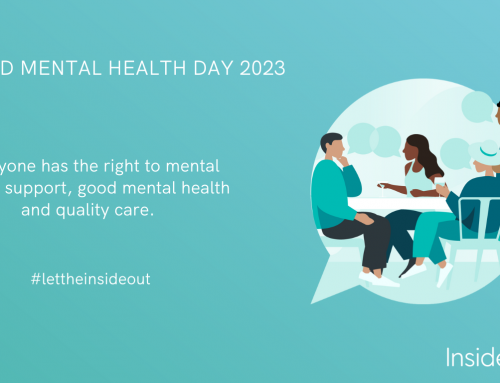Our stress response mechanisms have not yet evolved to match what we perceive as a threat today. This article summarises what happens in your body and how to manage your emotional state better.
Your body is brilliant at handling a crisis.
It has an amazing ability to adapt and mobilise all resources in an emergency.
Once your brain registers danger, your body’s physiological response mechanisms are there to keep you alive. It triggers the perfectly orchestrated, instantaneous sequence of hormonal, cardiovascular, musculoskeletal changes to help you react quickly. It’s very costly to your body but works in a short term crisis. The type of crisis that ends immediately afterwards, letting your body recover and go back to its normal state. [If you’re in luck and managed to run away and climb a tree.]
This design is particularly helpful when you’re chased by a predator. I’m sure it would be a brilliant HIIT workout, but has it happened to you lately?
But the way it works is also surprisingly simple.
In all its brilliance, your body’s physiological response to danger is always the same. It’s the same when you’re attacked by a lion and when you get an unexpected meeting invite from your boss.
This is so fascinating about the human body. We can activate the body’s full emergency response by merely thinking a thought. “It must be about last week’s project, the client is not happy with our progress and she probably thinks it’s my fault…”
And here is the crux of the issue. When we get stressed by creating events in our heads, we activate the same mechanism that our great, great ancestors used to run away from danger. Our body goes through the same intense symphony of stress induced changes because of a mere anticipation of something happening.
How often are you facing the lion?
Our bodies have not evolved to match our reality. You’re not likely to meet a lion on your way to work anymore (although a thug in a dark street can be the next closest thing).
Instead, stress hormones flood your body when you try to get our kids ready on time in the morning. You heart rate increases when you get an email from your client with feedback on your last project. Your palms get sweaty before the 11 a.m. meeting where you’ll need to explain your progress against that completely unrealistic sales target.
Do any of them sound familiar? We can easily put the system through the motions a few times before lunchtime.
Being under psychological stress for a long time is a relatively new thing for us humans.
And our body is not designed to function this way.
Take your heart as an example. Dr Robert Sapolsky in his brilliant book “Why zebras don’t get ulcers” compares it to a mechanical pump, with blood vessels connecting to it like hoses.
Together they make your cardiovascular system. The cardiovascular stress response makes it pump extra hard for a while. Your blood pressure rises so that more blood can get sent to your arms and legs preparing you to fight or run. But if you put your heart through it too frequently it simply wears out. Like any garden pump would.
Or cortisol, the stress hormone. Its optimal amount may be exactly what you need to survive that lion encounter. It supplies muscles with glucose that helps your body gather the energy needed to run or fight. But it also shuts down any body functions that are not needed right in that moment. The immune system, the digestive system, sex drive and the reproductive system to name a few…
From there you get a picture of how harmful persistent stress can be.
Understand your triggers
Does it mean that we’re doomed as a species? Not at all. Our built in equipment is may not be perfectly designed to cope with what causes us stress today.
But there is a lot we can do to manage our thoughts and perception of situations the cause us stress today. The key is to understand our triggers first, and get under the surface of what thoughts or beliefs sit underneath.
Here are a few strategies to start with, which work well for my clients:
- Write down 10-15 situations that activated your stress response this week. Include those seemingly trivial every day situations as well as any major life events affecting your life now. Be specific – e.g. “being late to the meeting with the CEO this morning because of a train delay” rather than “commuting”
- For each of those, write down the intensity level from 1-10
- Can you pinpoint the thought, or belief that made those events particularly stressful? E.g. “The CEO must have thought of me as unprofessional. Being late undermines my reputation”
- Is there an alternative interpretation, or a different lens you can view this situation through that makes it less stressful? E.g. “It’s unlikely that the CEO’s focus was on me during that meeting. Everybody in that meeting was late once, and understands that trains can be unreliable. I did a great job with my part in the end”.
- Can you see any patterns? For example, if being late triggers your stress response, are there things that you can do prevent this from happening, e.g. prepare your clothes the night before?
A great way to monitor your relationship with stress is to repeat this “stress diary” for a few following weeks and see if you observed any changes.
Author: Marta Abramska, Life Coach at InsideOut
Insta: @lettheinsideout






